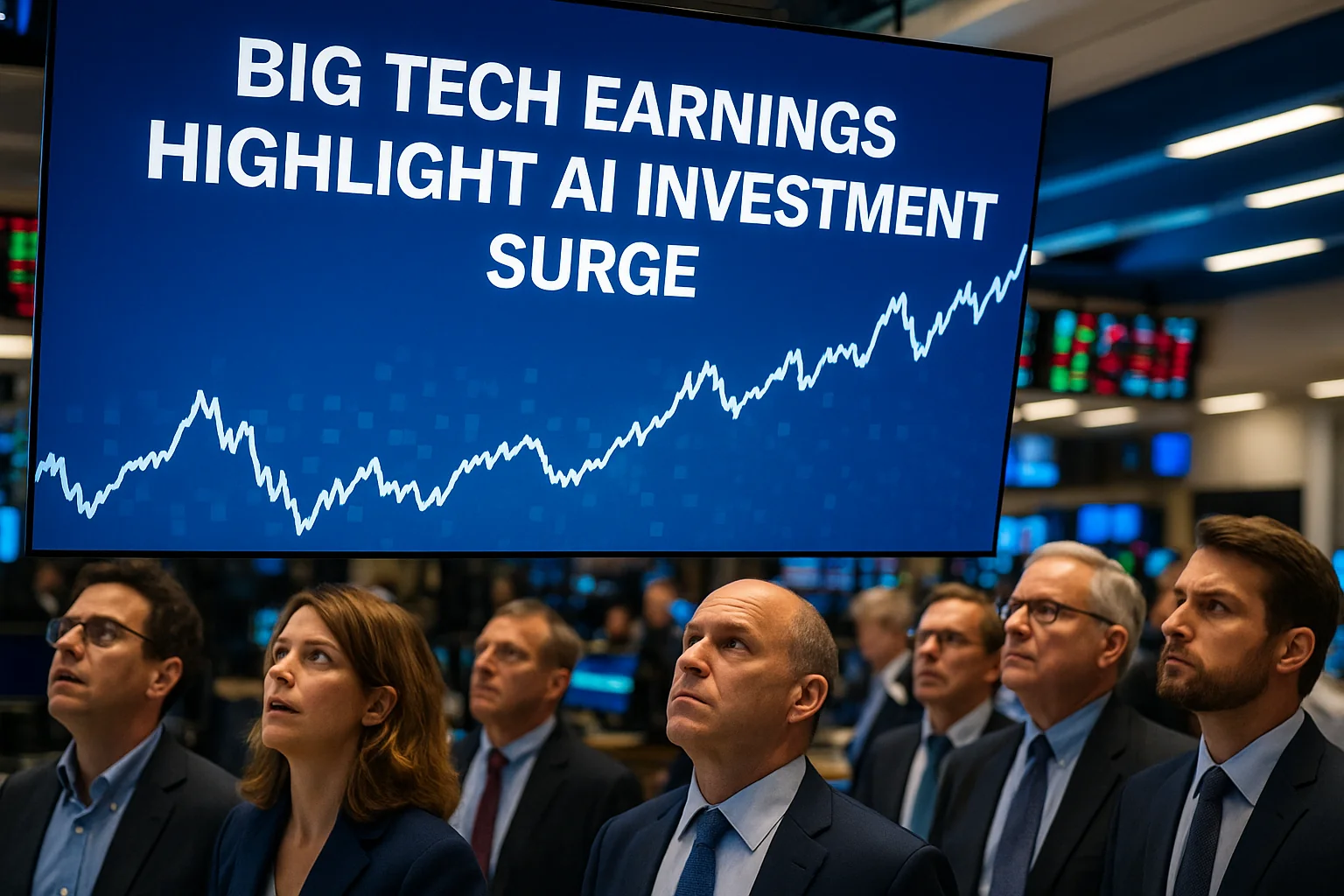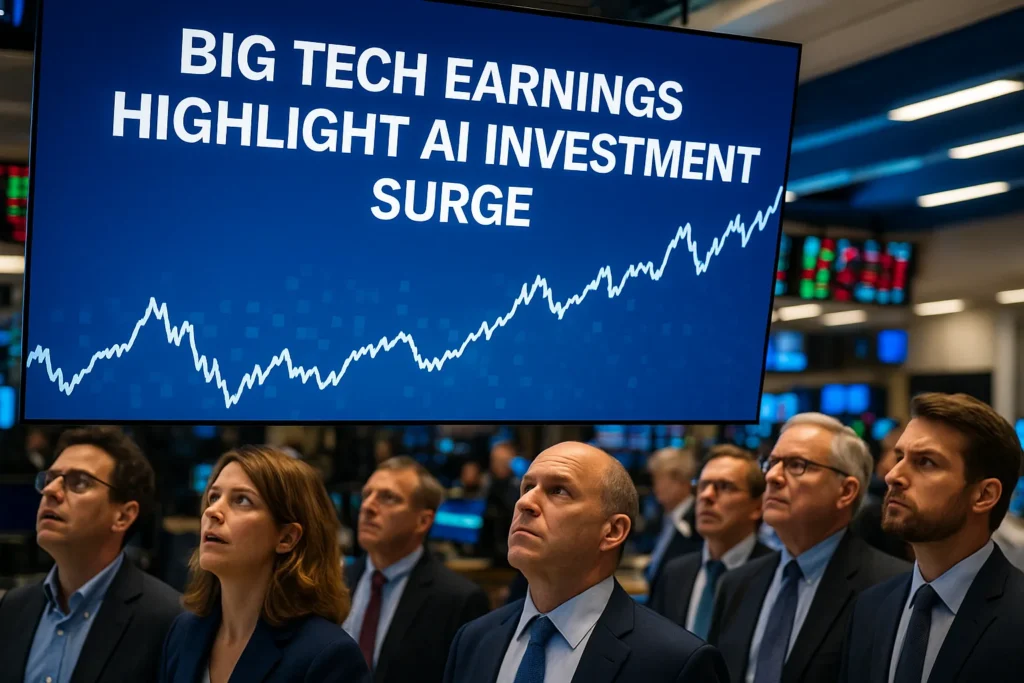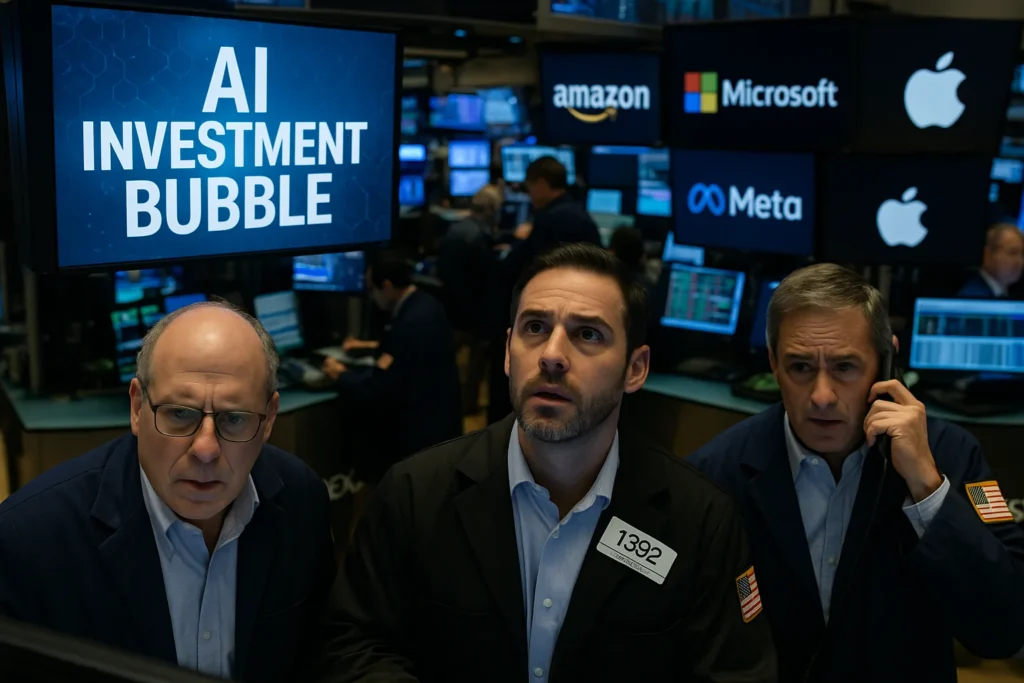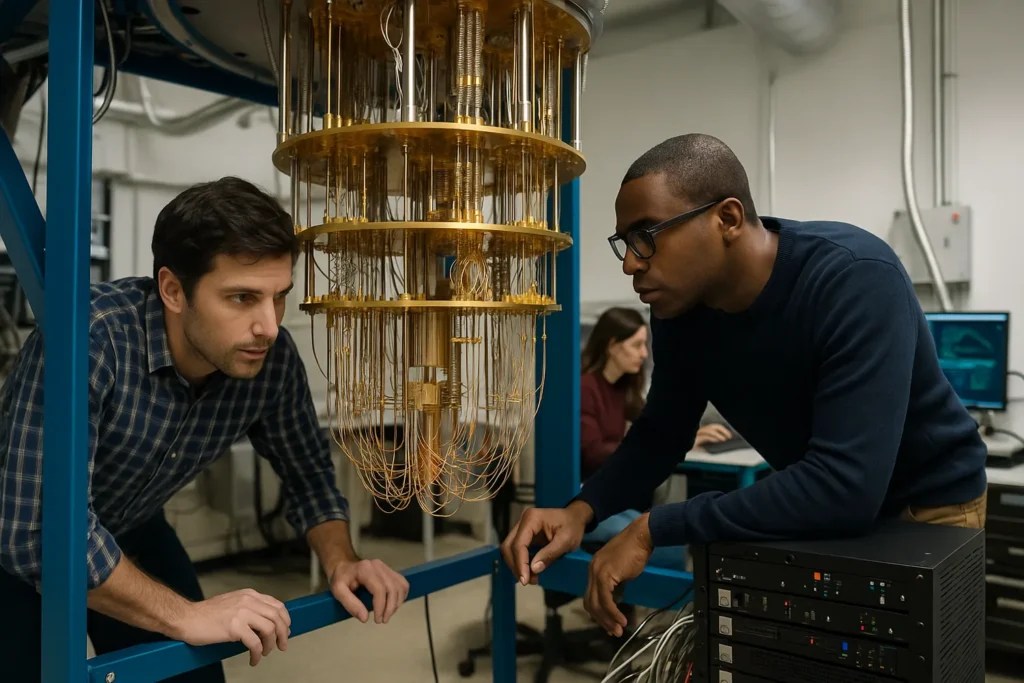Silicon Valley’s Golden Quarter
Big Tech has done it again — or so it wants investors to believe. Apple, Microsoft, Alphabet, Meta, Amazon, and Nvidia have all reported record earnings, each citing one common catalyst: artificial intelligence. Across Silicon Valley, “AI-driven growth” has become the new mantra, the marketing equivalent of a magic spell capable of explaining any profit jump, any new product, any surge in stock prices.
But behind the excitement lies a deeper question: is this an investment boom or the beginning of another digital delusion?
The latest earnings season paints a striking picture. Nvidia’s profits continue to skyrocket on relentless demand for chips powering AI systems. Microsoft’s Azure cloud division posted double-digit growth driven by its integration of OpenAI models. Meta claims its AI tools are revolutionizing advertising efficiency. Amazon’s AWS is flooded with enterprise clients seeking “AI infrastructure.”
AI, in short, has become the universal excuse for expansion — and the justification for prices that defy gravity.
The Price of Innovation
The scale of AI investment is staggering. Analysts estimate over $1.3 trillion has been poured into artificial intelligence this year alone. From cloud computing to chip manufacturing to model training, every corner of the industry is devouring capital. For Big Tech, this is not just a technological race — it’s a geopolitical one. The winners will control data, algorithms, and attention. The losers will become utilities for those who do.
But innovation isn’t free. AI’s infrastructure is among the most resource-hungry creations in modern industry. Each large model requires massive data centers, high energy consumption, and rare minerals that are already in global shortage.
At this pace, the so-called “digital intelligence revolution” is also becoming one of the most carbon-intensive economic shifts in history. The green future Silicon Valley once promised now runs on burning fuel for smarter machines.
The Bubble Inside the Boom
Every generation of technology builds its own mythology — and its own bubble. The dot-coms of the 2000s promised connection. The crypto boom promised liberation. The AI wave promises transformation. Yet the underlying psychology is identical: an inflated belief that the future has already arrived, and those who doubt it will be left behind.
Investors are betting on endless growth, but AI is not a finished product — it’s a perpetual experiment. Profit margins depend on usage, not speculation. Most AI applications still struggle to generate sustainable returns. Startups continue to burn cash faster than they can automate it.
For now, markets refuse to care. Nvidia is treated like a deity, Microsoft like a prophet, and every small-cap startup that mentions “AI” in a press release gets a temporary blessing. This is not rational exuberance — it’s faith investing.
Power, Monopoly, and Control
Behind the glamour of trillion-dollar valuations hides a darker story: consolidation. AI is accelerating the centralization of technological power. A handful of corporations now dominate computing resources, datasets, and distribution channels. The same firms that shape the digital world are building the systems that will define how humans interact with knowledge itself.
This is not innovation — it’s absorption. The smaller the competitor, the faster it’s acquired. Venture capital funds no longer dream of independence; they dream of exit strategies. Startups innovate just enough to get swallowed by giants.
The irony is that AI, a field that once promised decentralization and creativity, has become the most monopolized frontier of all.
The Human Cost
While shareholders celebrate record profits, employees face a quieter reality. Automation is replacing mid-level positions faster than new ones are created. Data workers and designers find themselves redundant in a world obsessed with “efficiency.” Meanwhile, content creators, educators, and artists are watching their skills become replicable lines of code.
For the ordinary worker, AI is not a revolution — it’s a reckoning. Big Tech may talk about empowerment, but what it really sells is dependency: a system where even creativity is rented.
And as the sector grows richer, society grows poorer in agency.
What Comes After the Hype
The latest earnings may mark the peak of the AI euphoria. Revenue is real — for now. But so is the overexposure, the overinvestment, and the overconfidence. Technology always delivers progress, but never without price.
The AI surge will change the world — not because it can do everything, but because it will force us to confront what happens when intelligence becomes industrial.
In the end, this boom isn’t about machines replacing humans. It’s about humans redefining themselves around machines — and the world discovering that intelligence alone doesn’t guarantee wisdom.
External Links
• Reuters – Big Tech earnings highlight AI investment surge
• Financial Times – AI spending drives record profits for tech giants
19 views






